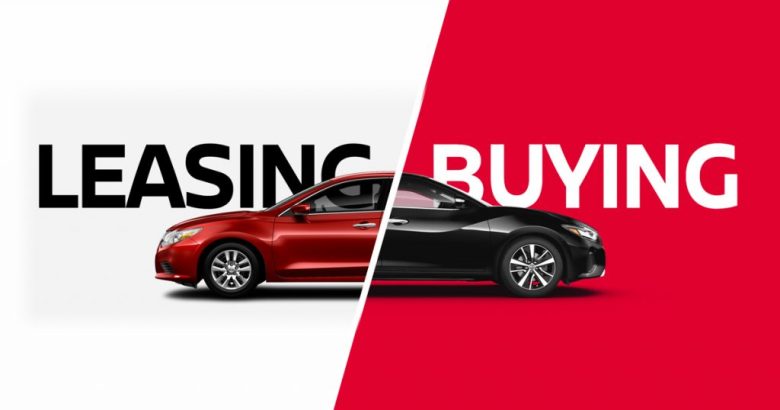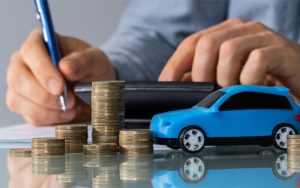When people want to buy a new car, they have to make the difficult choice between leasing or buying. Each option has pros and cons, and the best option for each person depends on their financial situation, driving style, and personal preferences. Understanding the differences between renting and buying and the pros and cons of each can help you make an informed choice that fits your lifestyle and financial goals.
Understanding Leasing
When you lease a car, you rent it from the seller for a set period, usually two to four years. You pay the dealer a monthly fee for the use of the car during the lease period. At the end of the lease contract, there are three options: return the car, buy the car for a fixed price, or lease a new car.
When you lease instead of finance, your monthly payments are typically lower, which is one of the best things. Lease payments are generally lower than loan payments on a comparable car because you only pay the car’s depreciation over the lease term and not the full purchase price. Doing this can make it easier to get a luxury car with more options. When you lease a car, you also get a new car every few years. This way you can continue to use the latest models with the best safety and technological features. In addition, because most lease agreements concern new vehicles, the manufacturer’s warranty usually covers the entire lease term. This reduces the risk of having to pay for unplanned repairs.
However, leasing has some limitations. There is usually a limit on the number of miles you can drive per year, usually between 10,000 and 15,000 miles. If you exceed the distance limit, you will have to pay an additional fee, which can quickly add up. There are also rules for how much normal wear and tear a car can tolerate. If you violate these rules when returning your vehicle, you may be charged. Another disadvantage of leasing is that you cannot build wealth with a car. When the loan expires, you no longer own the car and have no proof of what you paid. In addition, if you want to end your lease early, this can be expensive as the costs can be very high.
Understanding Buying
To buy a car, you take out a loan and then pay back the loan within a set period (usually three to seven years). When you pay off the loan, you fully own the car. You can keep it any way you want, drive it any way you want, and change its appearance any way you want. One of the biggest benefits of buying a car is that it builds wealth. When you pay, you get a larger share in the car. When the loan is paid off, you become the owner of a valuable item. This is especially useful if you plan to keep the car for a long time. You don’t have to make monthly payments, which saves you money in the long run. Moreover, buying offers more freedom than renting. Not only are there no mileage or wear limits, but you can sell or trade the car at any time without paying any fees. This freedom can be useful if you need to change the way you travel or your driving habits.
However, monthly payments for purchasing a car are typically higher than for leasing a car. Loan payments are generally higher than lease payments on comparable cars because you pay the full price of the car. Additionally, the value of a new car drops quickly and you can lose a lot of value in the first few years of owning the car. If you sell or trade the car within a few years, you may get less than you owe on it. This is called negative equity. Another thing to consider is that as your car ages, repairs and maintenance can become more expensive. If the manufacturer’s warranty expires, you will be responsible for paying for all repairs, which can be expensive if the car is old. It is important to take these possible costs into account when choosing whether to buy a car.
Financial Considerations
When choosing between leasing and purchasing, it is important to consider the total cost of ownership. Initially, leasing may seem cheaper due to the lower monthly costs, but over multiple lease terms, the total costs can increase. On the other hand, if you buy a car, you will have to pay more every month, but if you keep the car for a long time, it can be cheaper in the long run.
Consider factors such as your budget, how long you plan to keep the car, and how you typically drive to find the best value for your money. If you prefer lower monthly payments and like to buy a new car every few years, leasing may be better for you. If you want to save money in the long run and drive as much as you want, it may make more sense to buy rather than rent.
Personal Choices and Lifestyle
Your taste and lifestyle are also very important when deciding whether to lease or buy a car. If you like having the latest technology and features and prefer to drive a new car that is still in use, leasing may be a better option for you. However, if you want to own something and avoid the rules and costs that come with leasing, buying may be a better option.
Also, look at the way you drive. Leasing can become expensive if you drive a lot of kilometers or have frequent breakdowns. You may have to pay additional travel and wear and tear costs. If you buy it, you can drive it as much as you want without having to worry about these extra costs.
Conclusion
When deciding whether to lease or buy a car, consider your budget, lifestyle, and personal taste. The lower monthly payments of a lease allow you to drive a new car every few years and reduce maintenance costs, but you can’t exceed a certain mileage or build equity. There may be maintenance costs and higher monthly payments if you buy, but you own the property and have more freedom. By carefully weighing the pros and cons of each option and assessing your needs, you can make the best choice for your situation. Whether you decide to buy or lease a car, understanding the practical and financial implications will help you feel confident throughout the process.



